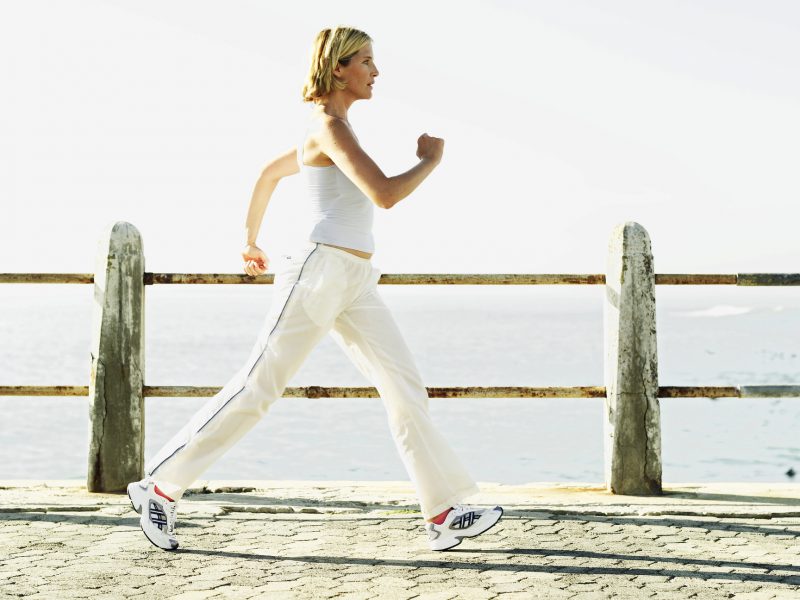Learn about brain health and nootropics to boost brain function
The top 5 science-backed benefits of walking

Staying active despite lockdown orders due to the coronavirus pandemic can be difficult, especially with many gyms across the country shuttered. But there’s one exercise that can be done anywhere, is easy to do even when social distancing and has big benefits — from boosting your brain health to keeping your heart ticking.
Here are the top five science-backed health benefits of taking a walk: #1 — Lowers risk of heart failure
A 2018 study by the American Academy of Cardiology found that walking might be the best exercise for post-menopausal women, at least when it comes to preserving heart health.
In fact, the researchers discovered that women who spent at least 40 minutes several times a week walking at an average to fast pace had an almost 25 percent reduced risk of heart failure compared to women who skipped their walk.
And that benefit held true no matter what the woman’s body weight was or even whether she spent time in other forms of exercise besides walking. #2 — Protects against heart disease
In addition to reducing your risk of heart failure, walking can protect you from developing heart disease in the first place — and more effectively than other, more intense forms of exercise.
A landmark study reported by the American Heart Association found that while running reduced the incidence of coronary heart disease by 4.5 percent, walking resulted in a 9.3 percent drop in participants between the ages of 18 to 80. #3 — Beats back pain
According to the American Chiropractic Association, up to 80 percent of people will experience back pain at some point in their lives — and many people live with debilitating pain on a daily basis.
While doctors often refer you out for expensive rehab when you go in for a consult for your pain, a 2012 study found that for chronic back pain, walking is just as effective as those appointments with a physical therapy specialist. Peak Maximum Endurance™
Specially formulated to promote optimal oxygen utilization in cells… healthy arteries and blood flow… and naturally balanced hormones. #4 — Boosts brain health and memory
If you’re worried about keeping your brain healthy and preserving your memory as you age, walking is the way to go.
Research by a team of scientists at New Mexico Highlands University (NMHU) found that when your foot impacts the ground during walking, it sends pressure waves through your arteries to significantly increase the supply of blood to your brain.
And a second study that same year discovered that for people already living with mild cognitive impairment or Alzheimer’s, walking boosted the connectivity of their brains in the areas associated with memory loss. #5 — Reduces breast cancer risk
To round out our top five benefits… walking can bring for your health is a reduced risk of breast cancer.
Yup, even the big C can’t stand up to a simple walk.
A study reported by the American Association for Cancer Research found that seven hours per week of moderate physical activity such as walking has the power to reduce your risk of breast cancer by 14 percent, compared to three hours or less each week.
So even if you can’t get to the gym right now, you can get out and walk and grab all of the health benefits the exercise has to offer.
Editor’s note : You can experience your best health ever without extreme diets, dangerous pills or brutal workouts! It’s true! Part-time health nuts are learning how to get optimal health with half the effort — and you can too. Click here for a preview !
Sources:
> Regular Walking May Protect Against Heart Failure Post Menopause — American College of Cardiology
Walking can lower risk of heart-related conditions as much as running — American Heart Association
Back Pain Facts and Statistics — American Chiropractic Association
An aerobic walking programme versus muscle strengthening programme for chronic low back pain: a randomized controlled trial — Sage Journals
How walking benefits the brain — Experimental Biology 2017
Exercise Training and Functional Connectivity Changes in Mild Cognitive Impairment and Healthy Elders. — Journal of Alzheimer’s Disease
Recreational Physical Activity and Leisure-Time Sitting in Relation to Postmenopausal Breast Cancer Risk — American Association for Cancer Research
Read more at easyhealthoptions.com